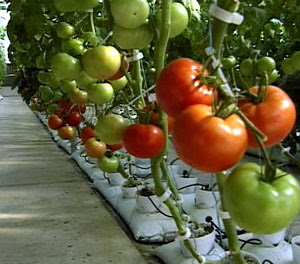Bringing new cases, the age will share the truth & knowledge. Depicting the endless corruption, debt, hate, control and battle that is conditioned into our everyday lives. It will exist for the years 2010 to 2020 (The information age). It will be as even sided & independent as possible as we go through the greatest transition age of power & energy the human race has ever experienced
"The world, nor the universe is a small place, its 1 natural consciousness aware of itself"
Thursday, 23 August 2012
CASE 418 - Self sustainability - Part 5 - Becoming self sustained
There's never been a better time to go self-sufficient, in a lifetime per person, per family or per group it is so much better and less of an impact on the earth, it costs less money, its more healthy for people and people, children especially can learn the importance of the balance between humans and nature by growing food and becoming self sustained. It may be a return to a frontier spirit for an American, or a yearning for a lost rural idyll for an Englishman, a way of life for many.Whatever the motivation, it has a long and honourable place in many cultures, and need not be associated with extreme or weird political views, poverty or deprivation. Self Sufficiency incorporates ideas of sustainable living which we will all have to inevitably abide by. Future generations will not have the luxury of the abundance of Earth's resources that we currently rely on, and eventually all aspects of urban self sufficiency will become commonplace in a more sustainable society.
A love of personal freedom is always present. Is that such a terrible thing?
You don't need to be rich or live on a farm to be able to Grow your own food and reduce your bills with Solar heating, Rainwater harvesting, and Off grid power to almost zero. From a suburban family to a high rise city dweller, anyone can increase their self sufficiency in some way. Self sufficient living reduces your Carbon Footprint by making small changes in every area of your everyday life.
Learning to live self sustained and becoming self sufficient isn't as easy as it sounds. It's not really that difficult either, once you change your mindset for it. The biggest hurdle is in the way that we think. Some of the common responses I hear to the self sustaining ideal is; 1- I don't have any land. 2- I can't live without commodities our society has got used to. It can prove to be very difficult to get over our notions of what we absolutely have to have to live. We are most certainly not used to going without or not getting what we want "right now".
One's basic needs, what are one's basic needs? I think of this as the fundamentals of life. 3 minutes without air, 3 days without water and 3 weeks without food and you die. We all have to drink and eat, we have no choice on that. Our choice comes in when we get to choose what we drink and what we eat. We can choose to not consume food and drink filled with chemicals, artificial flavors, steroids, antibiotics or lab created sweeteners. We can choose to not consume the genetically modified monstrosities being pushed on us by companies such as Monsanto and Dow. Choosing to not consume these fake foods is the easy part. Getting your hands on real food can prove to be a daunting task. For me, the outlets for real food are almost non existent. The seasonal farmers markets are full of fruits and vegetables trucked in from other areas and priced much too high. The high prices are a particular annoyance for me because I grow my own food here and I know that it does not cost more money to grow non GMO fruits and vegetables than commercially produced foods. So, why the huge price increase? Plus, all you have is some strangers word that they didn't douse those fruits and vegetables in some chemical pesticide or chemical fertilizer. So, what can we do then? Grow it for ourselves.
There are only a couple real living situations I consider to actually be difficult if not impossible without some serious help when it comes to growing any amount of food for yourself. Those would be living in an apartment these situations give you much option or flexibility for growing yourself some food without creating an indoor growing area. Every other situation can be successfully navigated with container growing, raised beds or conventional, in ground gardens. While gardening in any form has a steep learning curve for people that have never tried to grow anything before, it won't take very long to learn and with a little effort, you will be growing food successfully in no time and more than likely more food than you need.
Below is a chart that could help you become more self sustained
Previous cases relevent to this case
CASE 020 - Self sustainability - part 1 (Introduction to self sustainability)
CASE 361 - Self sustainability - part 2 (Growing food)
CASE 369 - Self sustainability - Part 3 (Powering homes)
CASE 379 - Self sustainability - Part 4 (Water)
Links and websites
http://www.self-sufficiency-guide.com/eBooks.html - Lots of free PDF books
http://www.selfsufficientish.com/main/
http://www.go-self-sufficient.com/
http://www.self-sufficient-farm-living.com/
http://www.goselfsufficient.co.uk/
http://www.self-sufficiency-guide.com/
Subscribe to:
Post Comments (Atom)




No comments:
Post a Comment